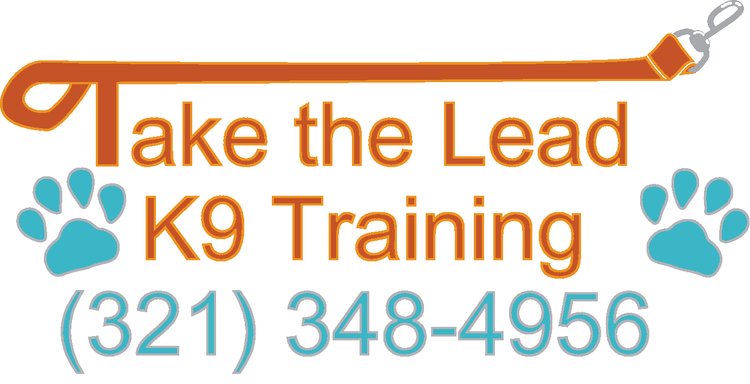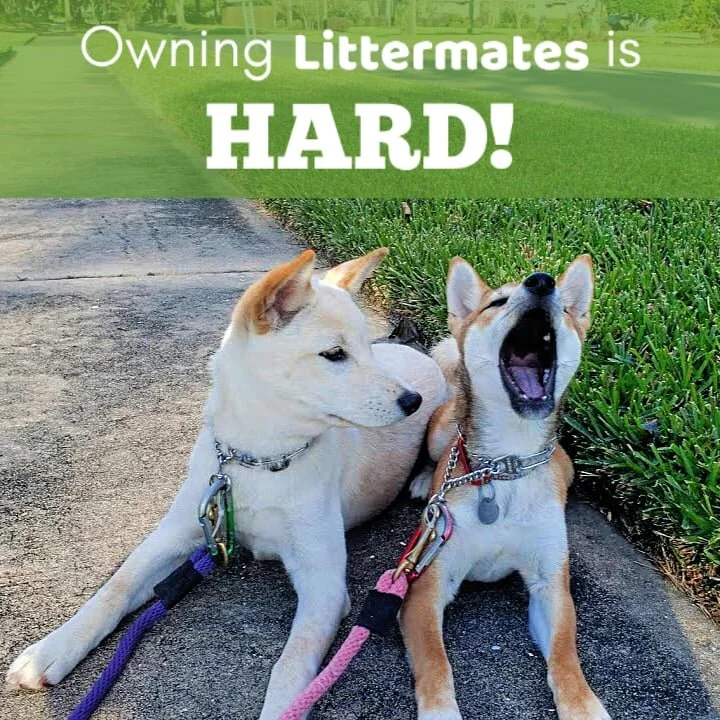Raising littermates is HARD!
Bonded relationships between dogs is special, and with littermates or puppies who are close in age growing up together, we often see that closeness! It's important to keep in mind that these guys need individual time, too!
Families often make the mistake of allowing the puppies to share the same crate, food bowls, and dog beds - allowing constant sharing of each other's space and being together ALL of the time. The downside to the inseparable and bonded relationship between littermates, is that they can easily grow to be very dependent on each other, instead of building strong individual relationships with their owners. This can make training each dog difficult, as well as just getting their attention when they are together! To the puppies, they are lost in their own world- we just happen to be people sharing the same roof. Puppies are instinctively very "dog centric" because they are coming from a litter full of playmates - puppies will always want to pick fun over listening, and will be looking to have fun with each other as often as they can!
In addition to having difficulty training and issues listening to their humans, these pups can often struggle emotionally in the future if they ever have to be seperated. For instance, if one pup has to leave the house for a vet visit and the other must stay home, or if something unforseen or tragic happens to one of them, these bonded pairs can really struggle being alone.
Often littermates, if unchecked, can also develop rivarly and even aggressive behavior towards each other as they start entering adolescence (around 8 months of age). Growing up, these duos often play frequently and ROUGH, and owners struggle to keep the play happening at appropriate times and at an appropriate levels of arousal - over time the constant rough housing and gladiator-like growing intensity can turn into scuffles and/or fights because the pups get SO intense and never learned how to regulate their play!
As they start to enter sexual maturity (even if they've been spayed or neutered) they may start trying to work out their "position" in the pack. If humans haven't managed to set believable boundaries and rules, due to the fact the dogs bonded more with each other than the people, it can be hard to represent a leadership role to influence calm and keep things peaceful...and the dogs will try to work it out themselves. 😬
So, what do we do?
To help prevent troubled waters with littermates, make sure to work on having lots of separation from each other - solo training and playing times with their humans and social experiences with other pets/people. Let them have "doses of togetherness" throughout the day - don't let them constantly be in cahoots with each other all of the time! Think of it as scheduled playtimes, instead of an all day puppy party!
Make sure you crate them separately! They each need their own kennel, and need to work on coming out at separate times. You want to work on creating patience and not create a stampede of two pups demanding to get out because their siblings is!
Help them become individuals! Make sure they each have their own food bowl, toys, and crates, as well as opportunities to create individual relationships with YOU without the other pup around. I can't stress how important it is to build individual relevance with each dog first, and then bring them together to listen as a team - not as a two-headed monster 😄
When there is a healthy balance of these things, the relationship between bonded pairs can be so amazing, because you are an important part of their relationship! You're creating a pair of pups who literally have their best friend on the same team 😊
That said, if you are looking at puppies and considering getting littermates so they have a "friend" - it is a TON of work. Remember, raising one puppy is time consuming, so raising two puppies and focusing on the delicate relationship dynamics to prevent problems in the future is EVEN MORE work!
Ask any dog trainer or breeder and most would highly recommend not having litter mates, and instead staggering puppy ownership so you can build a strong relationship with each! Kind of like when parents space out having kids, I find introducing a new puppy when your current pup is trained and well bonded to you (around a year and a half or so) is a good time - they'll still be puppies together, BUT you can have some influence to prevent the above mentioned "puppy problems" 😉
P.S. if you already have littermates (or two young puppies around the same age), I'm pretty sure you're already pretty aware of how much work two puppies at the same time is! I hope these tips help you build a routine to help you canine family dynamic move in a less chaotic, destructive, constant-play- all-the-time, and more listening direction!

